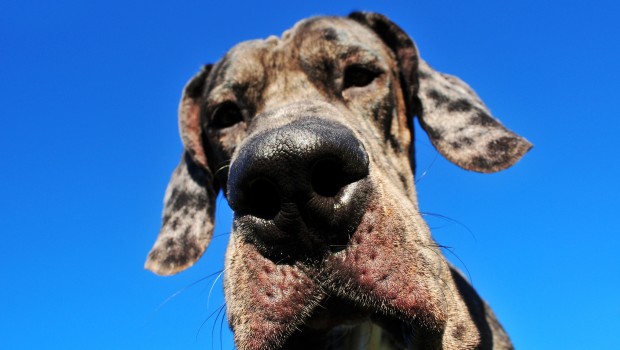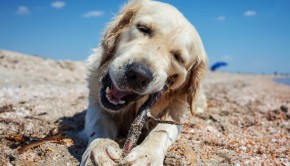Special Diets For The Overweight Dog
Should I put my dog on a diet?
The answer to that question is Yes, but only if your veterinarian recommends it. The same care, consideration, and advice should be taken when your dog needs to be put on a special diet program, as you yourself would get from your personal physician if you were put on a diet. You cannot diet your dog properly without expert advice, and in this case, as in most problems with animals, your pet’s best friend is always his veterinarian.
Your veterinarian has at his disposal many compounded special diets. There is one for the overweight dog as well as the dog with heart trouble or kidney disease. Manufacturers also supply him with prescription dietary foods for puppies, pregnant dogs, allergic dogs, and dogs with intestinal upsets.
There are dry, as well as canned, diet foods. The canned foods come in various sizes to meet the needs of the small dog and the large dog. Your pet’s doctor may recommend mixing several foods together. Special diets are often fortified with mineral and vitamin supplements. So if your veterinarian suggests that you put your dog on a dietary program, you know that he will be getting the best nutrition possible.
The Overweight Dog
Now let’s look at the most common reason why a diet is typically instructed by the veterinarian: the overweight dog. There are no ‘crash diets’ for obese dogs. If your dog is overweight, you are the one who is responsible for it. The overweight dog is very much like a fat person. He is short of breath and is often called a lazy dog. Exercising is just too much for him. All the energy he can muster is used carrying that extra weight.
One also must remember that it is the fat on the inside of the animal that causes the most trouble. The last time I spoke to a veterinarian about this issue, he explained to me what excess fat can do to the body. There may be fatty tissue surrounding the heart, the lungs, or the digestive tract which could cause these organs not to function properly.
The overweight dog needs low-calorie food for weight reduction. Your veterinarian will weigh your pet and determine how much he needs to lose. He will then prescribe the amount and type of dietary food he needs. Your full cooperation is needed if the diet program is to be a success. Do not feed him snacks in between his allotted meals, or any tidbits from the table for that matter.






